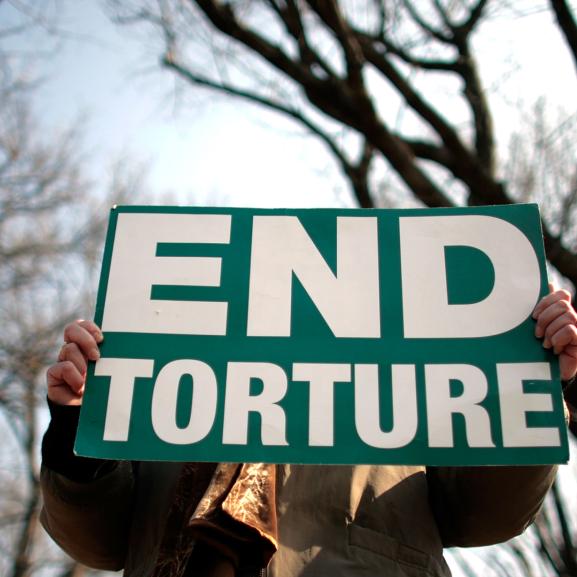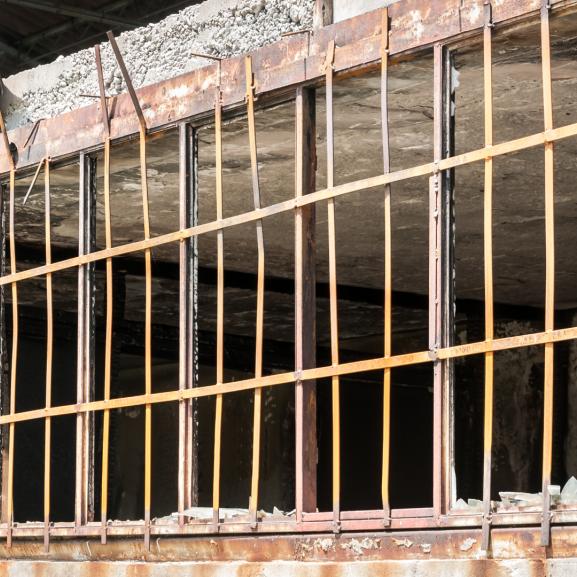Sri Lanka: 10 years later and still waiting for justice
Ten years ago, an estimated 40,000 civilians died during the last few months of a bitter, prolonged civil war in Sri Lanka. Human rights abuses, including torture, were committed by both sides. Despite committing violations that amount to war crimes and crimes against humanity, perpetrators have not been brought to justice.
Blog by Tracy Doig, Head of International Advocacy at Freedom from Torture
Ten years ago an estimated 40,000 civilians died during the last few months of a bitter, prolonged civil war in Sri Lanka between the government and separatist group, the Liberation Tigers of Tamil Eelam (LTTE). May 2009 also saw mass disappearances occur – when Tamils were told to surrender to the military for ‘screening’ – never to be seen or heard from again. During the war, the state had used torture, disappearances and extra-judicial killings. The LTTE were also responsible for torture as well as targeted killings, suicide bombings, and other abuses, including the recruitment of children.
Promises made and broken
In 2015, the new Sri Lankan government made commitments to the United Nations Human Rights Council to promote reconciliation, accountability and human rights. It also promised to enact a ‘zero tolerance’ policy on torture and to amend the problematic Prevention of Terrorism Act that provided a framework for terrorism to take place with impunity.
Alarmingly, the conditions, laws and institutions that allowed mass human rights violations to occur in Sri Lanka for decades remain in place.
Since then Sri Lanka has made some progress on a broader human rights reform agenda since 2015, such as setting up an Office for Missing Persons, but steps taken have fallen short of the commitments made to the Human Rights Council (HRC). Ten years after the fighting stopped, persecutory torture continues. Freedom from Torture has forensically documented cases of torture of clients who were tortured in Sri Lanka after 2015. Previously, we documented 148 cases of torture from 2009 to 2015 when Mahinda Rajapaksa was still in power. Alarmingly, the conditions, laws and institutions that allowed mass human rights violations to occur in Sri Lanka for decades remain in place.
Justice denied
Despite committing violations that amount to war crimes and crimes against humanity, perpetrators have not been brought to justice.
Despite committing violations that amount to war crimes and crimes against humanity, perpetrators have not been brought to justice and progress in investigations and prosecution of high-profile ‘emblematic’ cases, such as that of the ‘Trinco 5’ – five Tamil students shot dead on the beachfront in Trincomalee in 2006 - has been excruciatingly slow. President Sirisena has also denied that war crimes took place in the country and after the horrific attacks on Easter Sunday, the president has described investigations of state officials implicated in serious crimes including murder, as ‘harassment’. He said these investigations were responsible for the “weakening of the armed forces” which left Sri Lanka as vulnerable to attack. And last week, the former head of a military intelligence unit that is implicated in the abduction and murder of at least two journalists, was reappointed to active military duty in a special unit reporting directly to the army commander.
Security and rights are not mutually exclusive
The observance of human rights strengthens democracies, it does not weaken it. Acts of terrorism can never be an excuse for states to respond with measures that break international law. Nor to negate their obligation to deliver justice for past crimes.
Acts of terrorism can never be an excuse for states to respond with measures that break international law.
Sri Lankan torture survivors see a direct link between continued violations, successive failures of justice and accountability and the culture of impunity with the undermining of reconciliation efforts.
Sri Lanka is currently reeling from the atrocious terrorist attacks on Easter Sunday that left 253 people dead and from retaliatory communal violence that has seen Muslim homes and businesses attacked by mobs, leaving at least one person dead. As the state grapples to respond to these terrible events and to investigate and bring to justice those responsible, it is vitally important that they do so within the framework of the law. The government of Sri Lanka should publically re-commit to its zero tolerance of torture in light of the recent terror attacks and should ensure that current emergency regulations are not extended indefinitely and include administrative safeguards to guard against the use of torture or other inhumane treatment.
Furthermore, it is important that they agree to a set of time-bound commitments to implement the pledges it made to its citizens and the international community regarding accountability and reconciliation.
International governments should also ensure that the Sri Lankan government does not turn its back on accountability for past crimes while it grapples with the very real demands facing the country at the moment. States providing counter-terrorism support at this time should ensure that investigations are carried out lawfully and that torture is not used. It is vital for Sri Lanka’s long-term peace that justice and reconciliation for past crimes are delivered and that the current security response does not sow the seeds for future violence.







